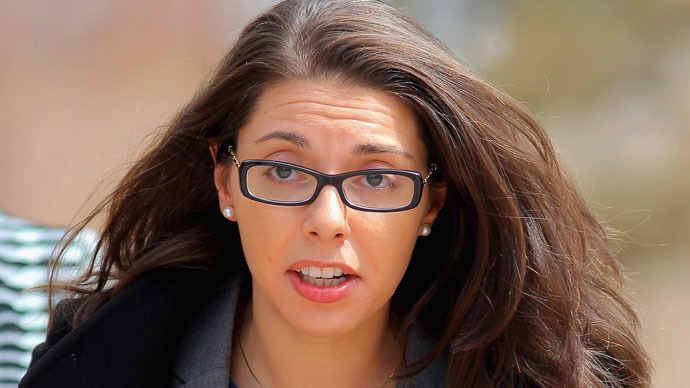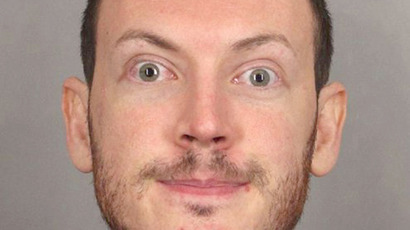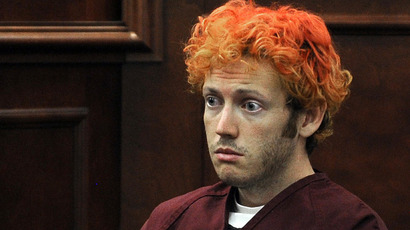Aurora judge delays decision on whether Fox News reporter who kept source secret will face time

The Colorado judge presiding over the Aurora, Colorado shooting case has delayed the decision on whether to subpoena a Fox News reporter until August. Jana Winter could face six months in jail if she refuses to divulge a confidential source.
The Colorado judge presiding over the Aurora, Colorado shooting case has delayed the decision on whether to subpoena a Fox News reporter until August. Jana Winter could face six months in jail if she refuses to divulge a confidential source.
In the days following the July 20, 2012 shooting, Winter reported that James Holmes, the alleged gunman, mailed a notebook outlining his plans to a psychiatrist at the University of Colorado at Denver before the massacre. Holmes’ defense team has said that the police officer who revealed that information to Winter violated a court gag order and could damage the credibility of other law enforcement officials if called to testify.
Judge Carlos A. Samour Jr. ruled Monday that he would delay his ruling on Winter until after the court decided whether to include the notebook as evidence, the Denver Post reports. Holmes’ attorneys have asserted that the notebook is not permissible because it falls under doctor-patient privilege and can only be introduced if Holmes uses a mental health defense.
Winter has argued that revealing her source would ruin her credibility as a member of the media and potentially make it possible for the anonymous law enforcement official to sue her. Her attorney, Dori Ann Hanswirth, said Judge Samour’s initial decision to delay the ruling was “a very positive step” for the reporter.
“The Court is not comfortable proceeding on an incomplete record,” Samour wrote on April 8. “If the notebook is not privileged and is ruled admissible, it may well prove to be a critical piece of evidence in the case. On the other hand, if the Court concludes that the notebook is privileged and inadmissible, it is difficult to discern why the credibility of one or more of the … witnesses would be of importance.”
Samour also said he would have to investigate whether any of the
officers who swore they were not the source of the leak perjured
themselves on the witness stand. Holmes’ attorneys were scheduled
to spend Wednesday’s hearing re-questioning at least one detective
of whom, they admitted, they failed to ask everything they
needed.
“I’m going to make sure the seeking party jumps through all the legal hoops that are required,” Samour said.
Colorado is one of 40 states that have laws protecting journalists from revealing their sources, although state law stipulates that the rule, RCFP 40, can be ignored if the information in question is “directly relevant to a substantial issue involved in the proceedings.”
Reporters in Colorado are more often subpoenaed to testify about what a source told them instead of being threatened with jail time. While journalists have been sentenced in recent high profile cases, none are currently behind bars in the United States.
Journalism advocates have rallied around Winter, with a statement from the Society of Professional Journalists describing the threat as “nothing more than a witch hunt designed to silence the media on this case.”
“Taking information from a confidential source, especially for a case like this, is serious business,” Al Tompkins, a senior faculty member at The Poynter Institute, told CBS News. “There is great peril in reporting around stories that have gag orders. If you’ve granted anonymity it’s a binding legal contract. You can’t just break that.”














